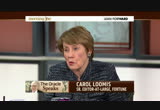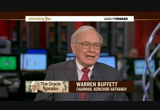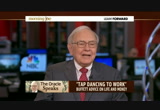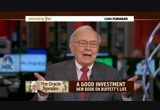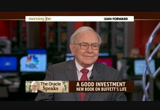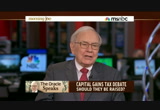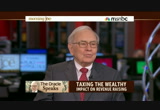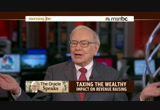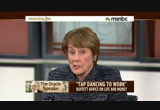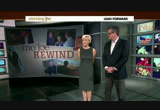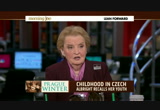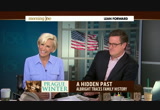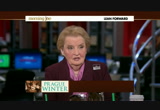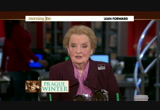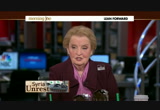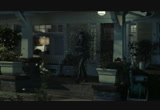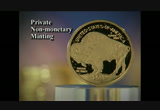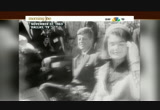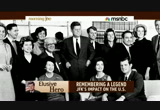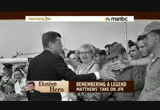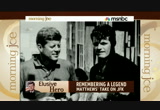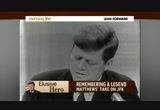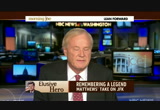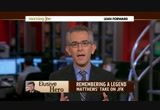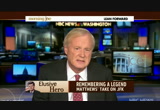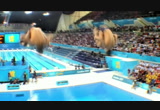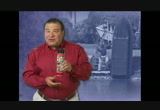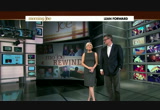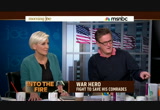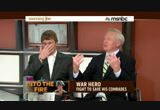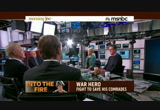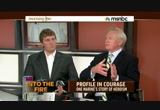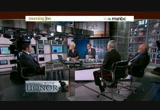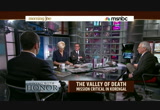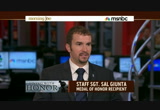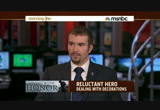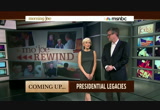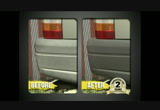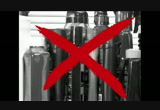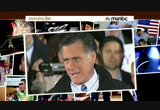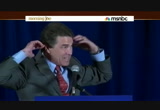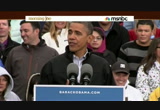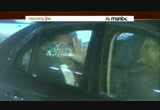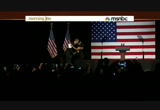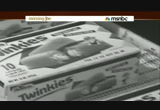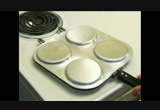tv Morning Joe MSNBC December 25, 2012 4:00am-5:00am PST
4:00 am
lost your appetite for romance? and your mood is on its way down. you might not just be getting older. you might have a treatable condition called low testosterone or low t. millions of men, forty-five or older, may have low t. so talk to your doctor about low t. hey, michael! [ male announcer ] and step out of the shadows. hi! how are you? [ male announcer ] learn more at isitlowt.com. [ laughs ] hey! good morning and welcome to "morning joe." i hope you and your family are having a great holiday week.
4:01 am
now, this hour, we're going to be revisiting some of our best interviews and conversations of the year. >> and we begin with a man who's been both a vocal and symbolic part of the debt discussion. the chairman of berkshire hathaway, warren buffett. he joined us on set along with carol lummis, who came out with the new book, "tap dancing to work: warren buffett on practically everything 1966 to 2012." a compilation about the oracle of omaha. >> what is the principle of warren buffett's life that keeps him who he is, but keeps him in his house and omaha. what's that thing in life that drove him in high school and drives him now? >> well, he does like to succeed, but money is nothing, absolutely nothing. he's always been driven and he got interested in invest, when
4:02 am
he was -- well, his first trade was at age 11. i have four grandkids and none seem to be headed in that direction. and he just, he always was interested in every element of investing. >> so he had a goal. >> he had a goal. and you're right, he likes winning. you like winning, you like succeeded, but money, and i'm not just saying this patronizing, because most really rich people i know, money is something that comes along with doing something they love, right? >> absolutely. >> so for you, what was that thing that drove you from an early age? >> i got interested in investing when i was like 7 or 8? i started reading every book in my dad's office and read every book in the public library. >> what was about that? >> it just fascinated me. the game fascinated me. it really is a fascinating game. you can play it so many different ways. when your hand/eye coordination goes and your legs leave you,
4:03 am
you can still invest. >> were you born with this innate knowledge or something you learned along the way? >> i think i was born with the right temperament and then i started reading and i never could get enough of it. >> you talk about the right temperament. we watch movies about wall street and see how popular culture covers it, and it's usually guys snorting coke, throwing computers against walls screaming and yelling. not the right temperament. have there been times, for instance, during the dot-com boom, where you're like, i'm a man out of time. what am i still in this business for? because there are times when people say, warren buffett, he's a thing of the past. my portfolio grew 48% net last year. >> and you have to be able to ignore that. it drive people crazy, normally, when their neighbor is getting rich and their wife is telling them, why aren't you doing that? >> it doesn't bother me at all. i know what i'm about and there will be times when what i'm
4:04 am
going isn't going to work and there will be other times when it works pretty well. >> i remember after black monday, was it, back in '87? >> '87. >> and we heard that mr. buffet lost a couple billion dollars. eh. paper in, paper out. >> as a matter of fact, he and i were heading in with 50 other people then to a meeting in williamsburg, right at 1987, just as that happened. and the next morning, these 50 people met and there was almost no conversation about that. very placid. almost nobody was exorcised. a couple people were exorcised, but not very much. >> no jumping out of windows? >> absolutely not. >> we had a program that went exactly as planned. but when stocks go down, the chance to buy them cheaper appeals to me. >> and if i can also, let's go
4:05 am
back to you, a lot of people needed your help after september 15th 2008. you went in and made some investments. those turned out pretty well for you? >> we spent $16 billion in three weeks. but america was not going to disappear. it was -- there was panic, no question about it. and we were -- the dominos were toppling and everything, but america wasn't going to go away. >> you had confidence in america. >> sure. >> i remember mika and i went over, i forget where it was, but we went over to host an event, a roundtable, simpson/bowles, and as we were walking in, one person after another, they were all talking about you, and not about how you were brilliant or how you were rich. they all talked about the confidence you had in america, while everybody else is talking about a rise in china, everybody else was talking about how we were collapsing, they said, you should have heard what warren buffett said. the guy is more bullish on america than ever before.
4:06 am
why is that? >> how could you be otherwise? we've come through a civil war, two world wars, the great depression, you name it. and this country works. just look where we were in 1776 and where we are now. >> i here the president talking about moving the top tax rate up to 39.6%. and i'm just wondering, is that as equitable an approach, when a lot of really rich guys and women look at that 39.6%. right now, i'm never going to pay that. >> yeah. >> or would it be better to raise the capital gains tax, say 15 to 25%? would that help with income disparity a bit more? >> well, that's why i suggest a minimum tax. because you're absolutely right. of the 400 highest incomes in 2009, which average $200 million a piece, a quarter of the people paid at a rate under 15% so the only way to get it that is to
4:07 am
have a minimum tax. >> how many of those would you bet, if you had to make a bet, paid 39.6 -- >> none of them. they just don't. and six people who were in that $200 million category paid nothing at all. they were around these 47%. they were the moochers. and they paid zero. you know, the way they get at them is a minimum tax. and it's very simple to do. and it will only apply on incomes a million above and another level at 10 million. >> what's the minimum tax again? >> the minimum tax, i would guess, would be 30% on income above a million, 35% above $10 million. and all kinds of people who are making that money, by labor, they're already paying those rates. >> would that also include people -- >> it would hit me. >> it would hit you. >> it would hit me. >> so you would not be paying 13, 14, 15% because of capital gains? >> no. >> i don't understand this, i'm making pretty good, but not
4:08 am
warren buffett money. and of course, i'm paying my full 35%. he said, you have to figure out to convert this to capital gains, because if you do that, you only have to pay 15%. i said, what? i don't have the accountants to figure that out. >> governor romney paid 14%, i paid 15, 16, we would be paying 35%. >> you refer to, even as a youth, investing as a game. >> it is a game. >> great game. well, they're playing a dangerous game with investing in washington, in the congress. so my question to you is, if the united states congress, specifically the house of representatives, were a private industry, would you invest in it? would you buy it? >> i think i'd get new management. but i wouldn't give up on the country at all. it's a wonderful country. believe me, 535 people aren't going to screw it up forever for 512 million. >> but they can screw it up momentarily. >> they sure can.
4:09 am
>> 1956, you write an article about this little-known -- >> one sentence. >> one sentence. >> it was in an article about another guy. >> this guy in omaha. at what point did the lightbulb go off over your head and said, okay, he's different, he's not only game changer, he's the guy that's going to create a new game? >> well, i may not have been that good, that expansive in my thinking, but i met him first in 1967. my husband had met him first and came homed and said, i think i may have met the smartest investor in the united states. and i think i probably rolled my eyes, because, you know, how husbands are always making these examples. then i met warren and his wife shortly after and realized this guy was unlike anyone i've ever met. could i see where he was gone, could i see 60 billion. could i see that huge rise in
4:10 am
the stock? absolutely not. >> warren buffett and carol loomis, thank you. coming up, former secretary of state, madeleine albright. and later, host of "hardball," chris matthews. you're watching "morning joe," brewed by starbucks. have a good. here you go. you, too. i'm going to dream about that steak. i'm going to dream about that tiramisu. what a night, huh? but, um, can the test drive be over now? head back to the dealership? [ male announcer ] it's practically yours. but we still need your signature. volkswagen sign then drive is back. and it's never been easier to get a passat. that's the power of german engineering. get $0 down, $0 due at signing, $0 deposit, and $0 first month's payment on any new volkswagen. visit vwdealer.com today. so we created the extraordinarily comfortable sleep number experience. a collection of innovations designed around a bed with dualair technology that allows you to adjust to the support your body needs - each of your bodies.
4:11 am
4:13 am
welcome back to "morning joe." former secretary of state, madeleine albright, is a frequent guest on "morning joe" to discuss foreign policies and world affairs. but this spring she came to us with her own memoir. "prague winter: a personal story of remembrance and war from 1937 to 1948." in it, she tells of prague in one of its darkest chapters, the breakout of world war ii, when at just 2 years old, she was forced to flee czechoslovakia with her family. hearse is an immigrant story like so many others, including my mother's and fathers. whose birthday, my father's,
4:14 am
will never forget. you've got a really good memory. she's the author of the new memoir of "prague winter: a personal story of remembrance and war from 1937 to 1948." this book is amazing. >> and speaking of the brzezinskis, you know, it's amazing how much dr. brzezinski's life was shaped by the fact that they fled warsaw right before the uprising and mrs. brzezinski, of course, had to flee czechoslovakia, just like you. and you actually talked about in a debate that rose up about colin powell and his view of the world, polilus -- versus your v of the world, how your view was shaped by your childhood. >> there's no question it was. one of the big issues was munich. how was it possible for this small country, czechoslovakia, to basically be betrayed by major powers and deals made over
4:15 am
their heads and not standing up to evil. and so, i did, in fact, be -- i was affected by what people called the munich syndrome, which is basically to stand up to things, when evil is being perpetrated. >> and that is for our viewers, 1938, i believe, neville chamberlain goes to munich and appeases hitler. >> and what the story really talks about, much more than i ever knew, even at the time was how many deals were made to appease hitler, to kind of feed the beast and to see whether it was possible to just keep giving in to him, so that he would not carry out his plans to conquer europe. that's where the word "appeaseme "appeasement" really was the strongest and is really the indictment about how the western powers behave. >> first of all, what year did you flee check slozechoslovakic? >> in march of '39. >> and how old were you? >> i was 2. >> and my father was a member of
4:16 am
the check slovak diplomatic service. and he was out of belgrade when i was born. >> did your father know mika's uncle, grand uncle, i guess who was president of czechoslovakia? >> definitely. he worked for them, and he felt very strongly -- czechoslovakia was a very interesting place in the interwar period. it was the only functioning democracy. it was created in a large part because of woodrow wilson's policies is and the constitution was modeled on the american one, except one big thing, it had an equal rights amendment in it, even then. and basically, there was a desire by people like my father, who was in his early 30s, to try to make sure that czechoslovakia stayed democratic. so he then left, he was able to get out. >> and in '39, you all fled to london? >> we all fled to london where the government in exile was. and they created this government in exile.
4:17 am
my father broadcast over bbc, altering the war to the resistance movement. and i lived through the blitz. >> so your family stayed in london. >> well, we were in london all through blitz, and finally moved out to the countryside, in '43, '44. and we stayed in england until 1945 when my father went back and worked for the foreign minister. >> and i don't want to make this about your family. but the parallels are amazing, because mrs. brzezinski eventually got to london, and like millions of people, they had to move most of the kids outside of london to avoid the blitz, right? >> right. and then we all came to america. and the amazing part is how well -- i mean, i've known mika since she was really little, mainly because dr. brzezinski was my professor at columbia and it turns out that her mother went to wellesley, where i also went. a couple of years older than i.
4:18 am
>> it is amazing. so explain. i want to draw out something i brought up before. colin powell had always said, because he served in vietnam, that his first instinct when it came to war was to stay out. you said, because of your experiences, and because of munich and because of appeasement, your not first instinct, but your first reaction is, do we need to go in? explain that. >> well, it was, really. i saw terrible things happening. there were pictures on television for several weeks in bosnia, where people were being carted off to concentration camps, and it so much looked like pictures from world war ii. and i felt that we had the power to stop it. we had -- colin powell and i are great buddies and we talk about this a lot. but he basically had just come from the gulf war, where he had been successful, and he believes
4:19 am
in what has come to be known, the powell doctrine of using decisive power and how much power we would use. and he accused me of having munich syndrome, i accused him of having vietnam syndrome. >> two pretty good syndromes to have. >> the mixture of the two. >> we want to learn from history that it's pretty darned good. >> that's the point i want to ask the secretary about. if munich shaped the generation that may have inclined to intervene, even if the calculus was wrong, which led to vietnam, and a generation whose inclination was not to intervene, which may have led to rwanda and 800,000 deaths, what lessons are you worried about people taking the wrong lessons from right now in the international arena? >> well, i think that we -- the lesson, i think, is that we do need to take action. the question is, what kind of action. and i am very interested in the way that syria is being approached. in terms of really using -- i
4:20 am
teach a course on the national security toolbox. and we look at the various aspects of this, and what's happening is, the u.s. government and the international community is using the tools, operating internationally, getting international pressure, a variety of sanctions that are tighter and tighter. humanitarian assistance and saying that no options are off the table. so i know people talk about appeasement. it has nothing to do -- you know, assad may be a terrible, but he's not hitler. and it's not the same as when the western powers were basically trying to figure out how not to do anything over czechoslovakia, and here we really are trying to do something and being fairly good and calibrated about it. and then a lesson that colin powell really made at every meeting was, if you're going to go in, you've got to figure out how to get out. you've always got to have an exit strategy. so i think there are lessons to be learned, not just from munich, but from all the things
4:21 am
that have happened in the last 60 years. >> madeleine albright, thank you. coming up, there are currently 80 living recipients of the military's highest decoration, the medal of honor. this year, we have the honor of speaking with two of those men, former staff sergeant sal junta and former sergeant dakota meyer. their gripping stories are ahead on "morning joe." and up next, the day a nation lost its president. our conversation with chris matthews on jfk, elusive hero. stay with us. [ cellphon irping ] [ buzzing ] bye dad. drive safe. k. love you. [ chirping, buzzing continues ] [ horn honks ] [ buzzing continues ] [ male announcer ] the sprint drive first app. blocks and replies to texts while you drive. we can live without the &.
4:25 am
excuse me, chet. here is a flash from the associated press, datelined dallas. two priested who were with president kennedy say he is dead of bullet wounds. there is no further confirmation, but this is what we have on a flash basis from the associated press. two priests were called to the hospital to administer the last rites of the roman catholic church and it is from them we get the word that the president has died, that the bullet wounds inflicted on him as he rode in a motorcade through downtown dallas have been fatal. >> welcome back to "morning joe." that was bill ryan on november 22nd, 1963, announcing to the world that president john f. kennedy has been assassinated in a motorcade passing through dallas. >> this year, thanksgiving once again, fell on the anniversary
4:26 am
of that terrible day. and we spoke about it with chris matthews, whose book, "jack kennedy: elusive hero," is a best seller, and of course, now, out in paperback. you, of course, your book calls him an elusive hero. i'm struck by the quote that ted sorenson, his close friend and legendary speechwriter said about him. it sounds so much like what people say about reagan, still. i never knew everything about him. no one did. different parts of his life were seen by different people, but no one saw it all. so elusive. >> in fact, he lived his life as we all know it, his infidelities, he would hang out with certain guys who would share in that world and he had another set of friends who were absolutely faithful to their wives, like charlie bartlett and red fay. and would spend so much time with them, they had no idea about this other life he was living. he would compartmentalize
4:27 am
everything. but jackie had it right, she was still in shock, and invited teddy kennedy up there, that dark, rainy friday night, the week afterwards, and said, my husband wasn't this glamorous, playboy good-looking guide that everybody looked up to, he was still the kid who was the little kid alone, who was always sick. he had the last rites three times in his life before dallas. he was always sick, he had a bad back, a bad stomach, thought he had leukemia growing up most of the time. his parents didn't visit him at boarding school. and what he found in his life, probably like you and mika, what they found himselves in was reading, and history and heroes, including churchill, who became his great hero. and it's so true of so must have our great people, who are inspired not by the people around them but by the books they find and the heroes they found all alone reading at night or reading when they're sick. that was the jack kennedy we like, the dreamer, the hero worshipper. >> and that jack kennedy was
4:28 am
shaped by all of his time in bed, in hospitals. these pictures of him now, where he looks like he's a political sex symbol. a political god. but he grew up the scrawny kid that everybody said was scrawny. they all thought he might die one day. he was so frail. he always had his crutches with him. that time in bed, that time in the hospital, that's when he read. that's when his personality was shaped, wasn't it? >> in fact, you just hit upon it again. if you look at the picture of him and nixon back in '47 when they were freshman together in the house, nixon's taller than him. and then you see the picture, they are there down in florida in the electionn '60 and he's taller than nixon. it's so strange. he just got healthier and nixon. and poor nixon is watching this guy grow next to him and i don't think he can believe what happened to this guy. >> was he a great president as far as what he accomplished?
4:29 am
>> he had three years before he was killed. and if you go in terms of inspirati inspiration, did he lead people into politics, i would put him in the same category as hemingway. think about hemingway and the way he lived and he made all of us want to be writers. all of us wanted to be writers because of hemingway. he is the american writer. and that power of leadership is what kennedy had. he had made all of us growing up in that generation, everybody since, want to get into politics. before jack kennedy went into pl politics, it was stiff guys with three-piece suits, bob taft, nixon, guys that were really boring and who wanted to be one of them? and kennedy came along and said, no, this is the right thing to be doing. like hemingway did with writing, this is the thing you've got to be doing if you want to be a guy, this is it, and women later. and i think that really is what a leader is. and of course he got us to the moon, created the peace corps, the first real civil rights president. as my son, michael, points out, he's a real history buff, he
4:30 am
took the segregationist party and made it a civil rights party. and he inspired people to go into public life. he said, public life is where it's at. it's not sport, it's public life. that's the one redolent reality of our lives. he's still there as the symbol of, look at bill clinton. all of these guys are inspired to go into public life because of him. >> do you see in the second generation after president kennedy, others that still may rise up and become big national leaders? >> i don't see it yet. i think the new joe kennedy in congress will do very well. he may be there for life if he wants to be. patrick has had problems with addiction and dealt with it. he's happily married with a child. good for him to get into private life. i've always thought maria shriver could have done something in public life besides be first lady of california. i thought she had a lot of talent and incredible charisma. i'm not sure i see anybody right now. i know they have a lot of kids.
4:31 am
one thing you have with the kennedys is a lot of possibilities. because i tried to interview ethel kennedy one day. and if you want to know what ethel kennedy is really like, remember "terms of endearment." she's impossible to nail down. i put on my tape recorder and said, i want to interview you about bobby and jack kennedy and said, oh, no, no, no, even though she invited me over, she gets me on a boat with 65 kids, that's how many there are on that boat. there was max, her son, steering the boat with his feet. and it's quite a show. all the kids jump in the water and swim to the jetty. the kennedies are still that lively. i can't pick a winner, but there are so many options. >> chris, congratulations on the great book and paperback. but it's hard to make the comparison over the years between politics now and politics then. but where would you put kennedy on the scale of liberal, moderate, conservative, in
4:32 am
today's politics? >> i think he was a cold warrior in terms of foreign policy. he was intuitively anti-communist. he knew that meant authority for the top and no individual freedom at the bottom. he instinctively wanted to have a good time in life, enjoy life. he couldn't imagine being controlled by a state. so he hated the idea of communism. that was real with him. what he really wanted to do was end the arms race with the soviets. and he was able to do it with a limited test ban treat of august of '63. he was a cold war era, who like reagan wanted to end the chance of the world blowing up. so he was a smart cold warrior, who knew the goal of the cold war by its nature was to avoid a real war. that was what the cold war was about. the long period of patience and strength that led us -- and smarts, on both sides. i mean, khrushchev helped avoid a nuclear war. he played his part. and i think it was just working towards avoiding this heart or that could have come about. so in foreign policy, i would
4:33 am
say he was a smart, enlightened cold warrior who wanted to avoid a real war with the soviets. domestically, he was a democrat, doing what democrats are expected to do with medicare, pushing that with civil rights. i think he became more emotional about civil rights towards the end. so i would call him a regular democrat, domestically, out front on civil rights, foreign policy, a cold warrior who wanted to avoid a real nuclear war and i think he really did set the standard. >> chris matthews, thank you. up next, our conversation with two men who have received the military's highest honor. medal of honor recipient sal jun junta up next on "morning joe."
4:36 am
4:37 am
of honor, dakota meyer and sal junta. each out with a book telling their personal stories of survival and sacrifice. first, our conversation with marine sergeant meyer. >> well, it was a very simple framework and very tragic, that at the top, they decided that they would send in some afghan soldiers with their advisers, like dakota, into a small valley, that was surrounded by large ridgelines. and they said that the villages wanted to be friends. and this was right on the border with pakistan. and the pakistani taliban came over and set up an ambush in the middle of the village and they had everyone pinned down. no one could move. and then they were trying to cut them off in the rear and finish them and kill about 90 people. >> now, dakota had been forced to be left behind, right? >> dakota was left behind. >> they thought he was a little too crazy. he was fighting a little too much. and they made you sit there. back at the camp. >> i don't know what the reasons
4:38 am
are. you know, they had me sit back at the truck. i was the only infantryman on the whole patrol, and they left me back, not with my team, and i argued, of course. but that's just part of some of the doubts and frustrations that maybe if i would have kept my mouth shut and not tried to tell them what part of the mission was messed up, maybe they would have let me go in. >> so he heard the gunfire and reacted? >> and the first sergeant and others said, you stay out. and dakota decided, no, i'm going in. and he was warned, if he went in, he might be sent back on a plane to the states for disob d disobedience of orders. he said, i'm going in. and he was the only truck. and he said, i kept hearing all this static, then i realized those were all the bullets going by. and he and his driver came up behind the taliban, who were finishing their trap, and the
4:39 am
taliban were running up to the truck, trying to pitch grenades into it, and he was shooting people at, what, 2 feet, 1 foot? i mean, then the helicopter came in to get the -- evacuate the wounded, behind him, and if dakota hadn't been in there, an awful lot of people would have died. >> you talk about, it sounds so surreal, none of us can understand what that was like. you were talking about nature versus nurture, reminds me, though, what we have here is just, you know, admiral jack pferdmann, who ran training, was a friend of mine from pensacola, i asked him what made a great pilot. and he said, you know what, they keep sending us engineers. i don't want engineers. i want a guy that majored in p.e. that's got instincts and guts. that when he's in a firefight, he knows how to follow orders and just goes. it sounds, dakota, that you don't sit there and calculate it out. you just, you just act on
4:40 am
distin instincts, right? >> i do what i know is right. i do what my family has taught me. my dad has been there, a great role model my whole life, holding me accountable and leading by example. and i do what's right, i know what's right, i've lived that way and i just do what i think is right. >> but there was something else, mike, and that was, you know, with your passion for the red sox, about a baseball player, and when he's up at bat, he swung that bat 10,000 times. and he knows, he doesn't have to think about it. and i asked dakota, what were you thinking in the battle. and he said, just my aim point. just aim point. so he was using a 50 caliber machine gun, a 240 machine gun, his grenade launcher, a rifle, and finally he killed a man with a rock. and all the time he was looking at the sight picture, because he had fired 10,000 rounds before he had got into the fight. >> it's a combination of instinct and training and your
4:41 am
own values that you carry within that you just addressed. but in the context not just of this one battle, but in the context of your service in afghanistan, and your experience in afghanistan, thousand frustrating are the rules of engagement? >> you know, they're frustrating for two reasons. number one, it makes your commanders question everything that you do. but number two, it also allows your leadership to have a way to get out of accountability. instead of holding themselves accountable for, well, i should have made a decision, i should have known better, or i should have listened to my troops, it's like, well, the rules of engagement had my hands tied, so now i don't have to be held accountable for failing. >> the first living person to be awarded the nation's highest medal of honor since the vietnam war, sal junta, tell us about your experiences that you written about in the book and also what it is like, living with honor. >> originally, when i joined the
4:42 am
military, you don't ever expect to have any recognition. i think, naturally, you just want to serve your country. you want to better the people around you and we are all products of our environment. the valley of death, the korengal valley was called that because of the amount of contact we were taking, the amount of firefights. small arms fire, rpgs, rockets, whatever it may be. that tour for us was a 15-month tour, which was -- that's pretty long for -- >> that's a long time. >> -- for some young people. and we did what we were trained to do. we engaged the populous. we're there to hopefully make their lives better. help them out, find better ways to help them do the same thing they've been doing. and when i wrote the book, i wrote the book to one describe the valley, but, two, to describe the people around me. so often i'm congratulated or patted on the back or thanked. i've never done anything in the military alone. that's one the military does really great, is build a team and keep the team together. and kind of writing the book, i was able to put my buddies'
4:43 am
names in print and highlight the actions that they have done, because there's so many great things that men and women in uniform do every single day and we don't hear about. >> we first heard about you, actually, from our good friend, sebastian younger, who talked about your heroism and talked about the unit and talked about terrible conditions you were under. but i remember reading about it in "war" and i was struck by you describing it later. because it sounded, you know, remarkable what you did. and can i ask you to describe that. but what you did and the way you described it was like dakota meyer and like so many other medal of honor recipients who have said in the past, i did my job, it was reflex, i was trained well, and i was going to save my buddies. so talk about that night and talk about that and also the reluctance to be called a hero. because i've yet to meet a true
4:44 am
hero, coming back from war, that isn't reluctant to be called a hero. >> well, this is what we expect from men and women in uniform. we have to do whatever it takes. so for us, it's about the team. it's about the person to the left of you and the person of the right of you. you don't have to worry about yourself, because the person to the left and to the right of you will worry about you. and we have to take care of each other. we're all in this together. it is one team and one fight. that night in the korengal valley, it was just that. brothers looking out for brothers. in no way, shape, or form, if telling this story is a painting, my brushstroke wasn't the first brushstroke or the last one, and it wasn't the most beautiful or the most amazing, it was just one more brushstroke in time that helped paint this picture of this moment in the korengal valley in afghanistan. the men around me fired so many more shots. they did so much more true fighting. i was able to do what i did because of the people around me.
4:45 am
those are the guys. i'm alive here today. two of my buddies died that day. and you know, they weren't looking out for themselves, they were looking out for the men around them. >> and that's reluctance, again, like dakota meyer said, jack, you know, he didn't want to be called a hero, for, he considered himself failing. what the sergeant remembers is not the lives he saved, he remembers the lives lost. and that's why we expect, you know, we need to call people heroes, but they don't want to be called them. and i'm sure you felt the same way coming back from -- >> i did. when i was decorated, there were nearly 400 living recipients. there was still a living recipient from the boxer rebellion alive, beijing in 1900. quite a few world war i recipients. and we would talk about this and we all had exactly the same experience. nobody does anything by himself. you do what you can do, because
4:46 am
you want to take care of each other. and nobody wants to be called a hero. you think about all the people who perform valiantly. we've had tens of millions of americans the in uniform. so many of them perform valiantly. and maybe nobody saw it. or people saw it and they themselves were killed. or they put in the paperwork and it was lost accidentally or on purpose and you realize that you don't wear the medal for yourself, you wear it for all those who care. >> there's one other thing you hear, mike, time and time again, from heroes who come back from war. they say they're not heroes. they say the heroes are the ones who didn't come home. >> staff sergeant sal junta, thank you. coming up in our next hour, our all-star panel of presidential historians, they discuss the top legacies of some of the nation's best leaders. but first, willie's year in review. >> this is big. this is huge. weight watchers online worked for us. we don't argue much. we really don't. meg usually just gets her way, and i go along with it.
4:47 am
i think it worked for matt because i did it for him. when i'm the one cooking, i'm the one calculating the points. i can microwave things. you get to eat real food. we still get to go out. we're just so much smarter about it. we can keep each other in check. going, "okay, i see you." we've lost about 110 pounds together. it helped our love life. happy wife, happy life, right? right. [ jennifer ] weight watchers online. the power of weight watchers completely online. join for free today.
4:50 am
boy, it's been a very difficult and tragic year for so many people, just over the last couple of months and weeks. so we thought we'd pause for a moment here this morning and give you a look back at some of the more absurd moments of 2012. >> they chant more years. i think the right chan ought to be for them, four more weeks opinion. >> i've got a lot of fight left in me. >> we're going to get america back, get america strong. >> we cannot give up on change now. >> i'm going over now.
4:51 am
end? >> i'm going to be sassy today. ♪ >> yes, the angelic, honey boo-boo trash talked her way into america's hearts in 2012. >> pop my eyeballs out. >> the 7-year-old boo-boo child became your little princess and down the ballot a bit, barack obama became our two-term president. >> for the united states of america, the best is yet to come. >> we took the slow road to election day, beginning with a primary season that often felt like one long "snl" sketch. >> and the -- what's the third one there? i love this state. i love the lakes. i love cars. i like being able to fire people. 10,000 bucks? >> becky, becky. >> today has been awesome, girl. >> i made a lot of money. >> what a snob. >> let me leave you with this -- i believe these words came from the pokemon movie. >> laugh if you will, but early
4:52 am
versions of the gettysburg address also name checked pokemon. before we move to the general election, we should check in with the tanning mom. >> i mean, that's not normal. >> #jerseypride. on to the presidential campaign. before we do that, do we have that chinese lady vanishing into a sidewalk? there she is. one more and i swear we'll move on. can i please get the guy who turned his deceased stuffed cat into a remote-control aircraft? against the backdrop of that controversial dead cat drone program, president obama sought re-election in a campaign where we finally got the sophisticated adult political debate we've longed for. >> it would be obama-alamy. >> it's called romnesia. >> i love big bird. >> thank goodness somebody is finally getting tough on big bird. >> it was an epic battle of the world views. president obama launch 1,000 republican campaign posters when
4:53 am
he said -- >> you didn't build that. >> and true to his word, romney created new jobs, these in the democratic t-shirt and bumper sticker business when a closed. door chat went public. >> 47% of the people who vote for the president -- >> and while all this was going on, joe biden was just generally enjoying himself. >> i always say what i mean. >> in the end, neither a dominant first debate -- >> i have no idea what you're talking about. >> nor a virtuoso convention performance by clint eastwood. >> what do you want me to tell romney? can't do that to himself. >> nor this -- could carry mitt romney past the president. so very close to the oval office, romney now mostly hangs out at disney world. leaving the national stage along with romney in varying degrees of disgrace were general david petraeus, undone by an affair with his own biographer. lance armstrong stripped of everything, including the yellow
4:54 am
jersey on his back. and governor "rocket" rob blagojevich, sent to a federal lock-up for 14 years for the crime of being a chicago politician. >> i thought about mandela, dr. king, gandhi. >> one of blago's old opponents in the illinois state legislature, republican mike bost, became a web star when he lost his mind in public. >> trying to be released! let my people go! >> meanwhile, down in the florida legislature, there was rigorous debate this year over the meaning of jay-z's song "9 9 problems." >> aren't you sharp as a tack? you a lawyer or something? >> in that song, aren't you sharp as ta tack or something, you should try for a lawyer or something. got you on that. >> nobody cares much about the lyrics of 2012's biggest song. it was all about the horsey dance. just as south korean rapper psi and "gangnam style" approached a
4:55 am
billion youtube views, the research on his america-bashing past ended the good times. ♪ gangnam style >> no such problems for carly rae jepsen whose only song was planning a song into the perm hard drive of every american for all eternity. ♪ here's my number, so call me baby ♪ >> oh, nasa dropped a rover on mars. >> touchdown confirmed. a dude broke the sound barrier while skydiving from the edge of outer space. mark zuckerberg took his little dorm room project public. while another harvard man took over the nba. and still another stunned the country by upholding the president's health care law from the big chair on the united states supreme court. it was enough to make one more harvard guy sing. ♪ i'm so in love with you >> not quite as strong a year for the harvard of the pacific northwest. reed collins remitted here on
4:56 am
"wheel of fortune." >> wand! oh! >> 2012 was a tantalizingly cruel year if you were a lion simply trying to eat a young child at the zoo. >> oh, my god. >> it was a bad year in new york city if you were a person simply trying to drink a giant bucket of soda. but defenders of food freedom fought back with a mashed poe tay poe vending machine, an ice cream cone crust pizza and a bacon sundae. our faith was shaken a bit this year when a nun was caught on tape at a convenience star slippingal boys into her habit. ♪ ooh >> and the of the-mocked mayan 2012 doomsday prophesy ultimately came true with the announcement that hostess would stop making the twinkie. end times, indeed. ♪ i will remember you the loss of the twinkie was a kick to the spongy, cream-filled
4:57 am
258 Views
IN COLLECTIONS
MSNBC West Television Archive
Television Archive  Television Archive News Search Service
Television Archive News Search Service  The Chin Grimes TV News Archive
The Chin Grimes TV News Archive 
Uploaded by TV Archive on

 Live Music Archive
Live Music Archive Librivox Free Audio
Librivox Free Audio Metropolitan Museum
Metropolitan Museum Cleveland Museum of Art
Cleveland Museum of Art Internet Arcade
Internet Arcade Console Living Room
Console Living Room Open Library
Open Library American Libraries
American Libraries TV News
TV News Understanding 9/11
Understanding 9/11

